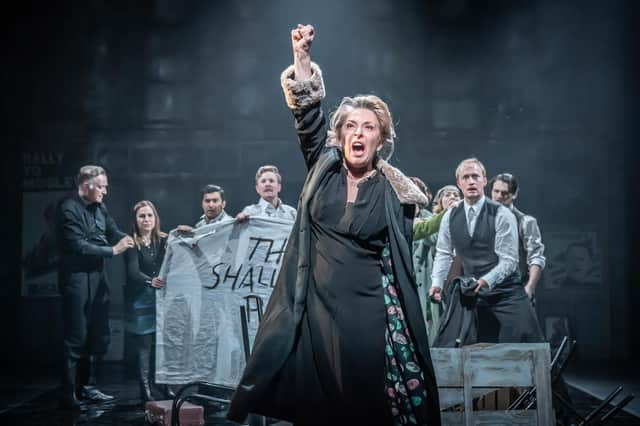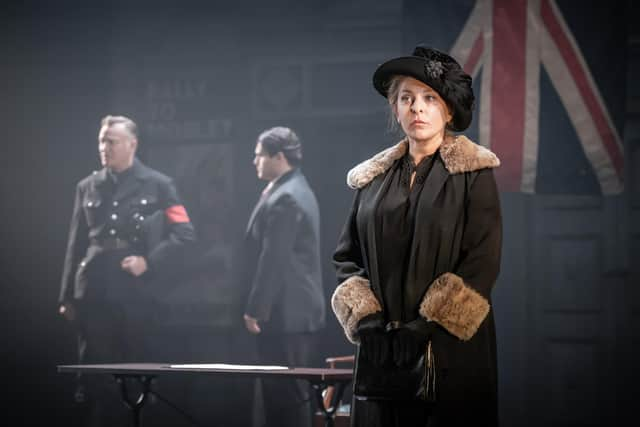Review: The Merchant of Venice 1936 inspires and enlightens on Stratford stage


Venice becomes the East London of the 1930s in this powerful and affecting take on the Shakespeare play.
It begins with a Passover Seder, with which the audience is invited to drink along. It ends with an inspiring stand against oppression in the Battle of Cable Street, with which the audience is invited to join in. In between, the familiar tale of intrigue, love, jealousy and bigotry plays out with briskness and punch. It lasts just a little over two hours, the script heavily cut. What it lacks in richness and subtlety, it makes up for in impact.
Advertisement
Hide AdAdvertisement
Hide AdThe rise of fascism in pre-war Britain remains one of the more dangerously overlooked aspects of the country’s history. Brigid Larmour’s production depicts it graphically, with projections of speeches by Oswald Mosley, who led the black-shirted British Union of Fascists in its campaign of hatred against Jews. It casts the antisemitism running through The Merchant of Venice in the starkest light.


Tracy-Ann Oberman plays the Jewish money-lender Shylock with a captivating, matriarchal pride and a luminous presence. She was inspired by her great-grandmother Annie and other working-class Jewish women of the East End; Oberman’s performance is shot through with deep knowledge, understanding and conviction. Rarely can a Shylock have been so convincingly heroic, nor the “Hath not a Jew eyes?” speech so fiercely moving.
She is supported ably, but some of the characters in this version work better than others. Its most notable failing is its depiction of the more virulent anti-Semites as rather cartoonish baddies: as we still see today, the reality of anti-Semitism is often more insidiously pernicious, enabling it to work its way into seemingly more credible figures and political movements. More trivially, a scene of attempted comedy that seems to be based entirely on the characteristics of a Spanish accent seems a little misjudged.
But The Merchant of Venice 1936 doubtless succeeds in achieving what it sets out to do: using this 400-year-old play to teach us not only about our recent past, but about the continuing need to remain alert, lest those darkest of days return.
At The Swan until October 7, returning from January 24 to February 10. Visit rsc.org.uk to book. See merchantofvenice1936.co.uk for tour dates.